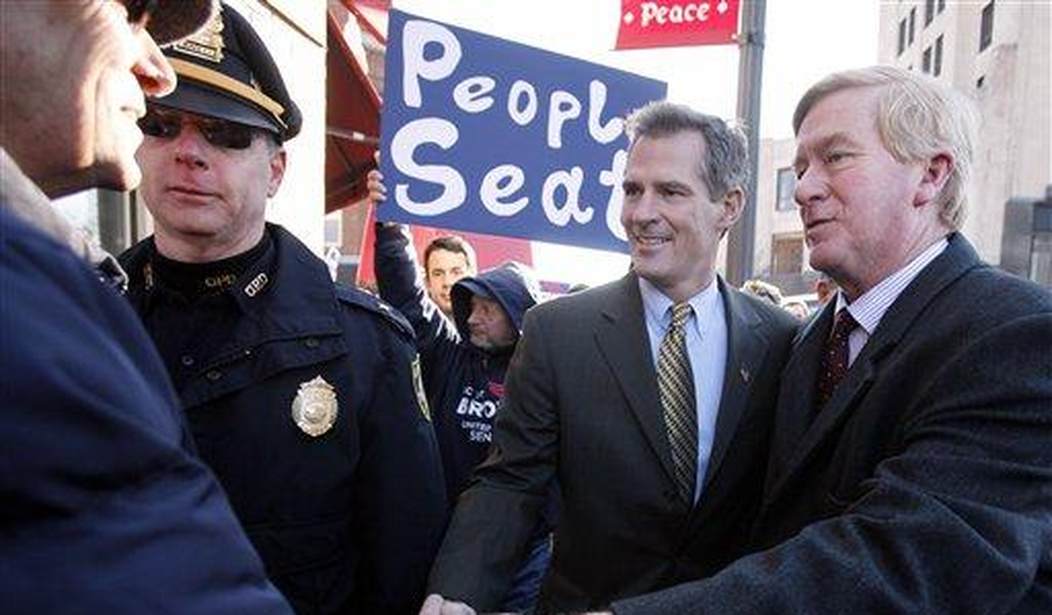Earlier this month the White House Office of Management and Budget (OMB) released an updated budget that projects a federal deficit of over $1 trillion by 2019; one year earlier than previously projected due to increased government spending of over $101 billion. Given the increased spending, it’s understandable as to why many, including 1992’s Most Fiscally Conservative Governor Bill Weld, believe that no one in Washington seems to take the deficit seriously at all. I sat down with Governor Weld to discuss the current state of affairs and his message was simple, “There’s no reason why the federal government shouldn’t balance its budget annually the way every single family in the United States has to.”
The notion of a balanced federal budget may sound like a pipe dream, but according to Governor Weld, Congress’s current budgetary policy is a fairytale. “When they [Congress] do the budget annually, they say that anything less than a 5% increase in any appropriation item is a cut. It’s Alice in Wonderland.” Instead of “bootstrapping,” budgeting based off last the previous year’s appropriation or authorization, Governor Weld advocates that the federal government utilize zero-based budgeting.
Zero-based budgeting assumes that every appropriation account is zero going forward unless it can justify itself, which he simplifies as budgeting “on the basis of what outcomes were delivered to citizens.” For example, if an expensive healthcare program did not meet specific outcomes, it would not receive funding, and as Governor Weld put it, “It went away.” It is this type of fiscal conservatism that Governor Weld attributes his success in turning what was once known as “Taxachusetts” back to Massachusetts.
When Governor Weld took office, he inherited what the former Dukakis administration called “a state that was bankrupt” and one that “could not balance its books.” Regardless of how far down the rabbit hole the state was, Governor Weld was required to file a balanced budget just as every other governor had to per their state constitutions; except for Vermont (where Governor Weld jokingly pointed out is where Sen. Bernie Sanders lives and where he guesses “Everything is free”). Given the circumstances, most politicians’ first instinct would be to start raising taxes, but not Governor Weld’s.
Recommended
As a self-described “supply-sider” in economics, Governor Weld understood the stimulating power that tax cuts could have on the economy. When he took office, the unemployment rate in Massachusetts was roughly 10% which was the highest of the industrial states. Three years of spending cuts via zero-based budgeting and 21 tax cuts later, the unemployment rate in Massachusetts was 4% which was the lowest of the industrial states. The key to Governor Weld’s success was not tax cuts, but tax cuts in conjunction with reduced spending. While the majority of Congress understands that tax cuts stimulate the economy, what they don’t grasp that Governor Weld does, is that “cutting taxes without cutting spending is a dangerous gambit.”
The “dangerous gambit” has arguably led to nearly unprecedented deficits that are expected to equal 5.1% of the United States’s gross domestic product (GDP) in less than a year. The apathy in Congress is near deafening as they continue to pass monstrous omnibus spending bills and continuously raise the debt ceiling. When I asked Governor Weld his thoughts on Sen. Rand Paul and Rep. Thomas Massie who are often the thorn in the side of the Republican Congress for their refusal to vote the party line on issues such as the budget, he frankly stated, “We can’t have everyone rolling over and playing dead. Making a certain amount of noise is a good thing. I make noise everywhere I go.”
In fact, Governor Weld has been making so much noise over the course of 2018 that many journalists have speculated and even stated their belief that he will be seeking the Libertarian Party’s nomination for president in 2020. Republican columnist George Will recently wrote a piece about Governor Weld’s potential run for the nomination and implied that he is “what a broad swath of Americans say they favor – limited government, fiscal responsibility, free trade, the rule of law, entitlement realism and other artifacts from the Republican wreckage.” Reason Magazine’s Editor-At-Large Matt Welch has more than hinted at his belief that Governor Weld is gearing up for 2020 in a handful of articles as well as with a podcast entitled “Yeah, Bill Weld is Totally Running for the Libertarian Presidential Nod in 2020.”
Although Governor Weld would neither confirm nor deny any potential run in 2020, it didn’t stop him from answering my question about what department he would give the axe to if he found himself in the Oval Office. Without hesitation, Governor Weld answered, “Oh, I would abolish the U.S. Department of Education in a heartbeat.” In a nod to the campaign promise made reality by then candidate Jimmy Carter to secure the endorsement of the teachers' union, Governor Weld finished by calling the Department of Education “nothing but a wet kiss from future President Jimmy Carter to the Democratic National Convention in 1976.”

























Join the conversation as a VIP Member